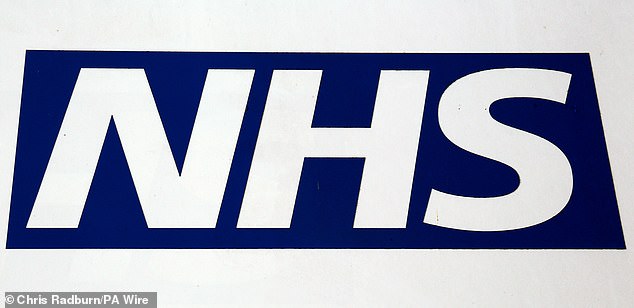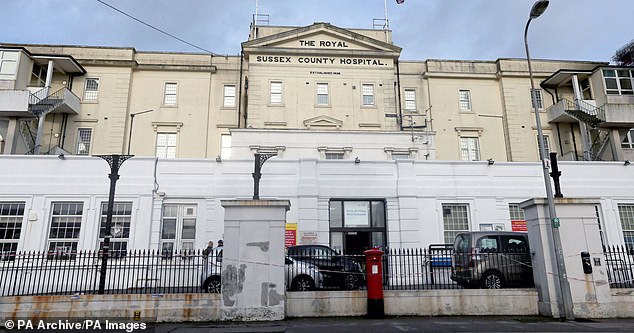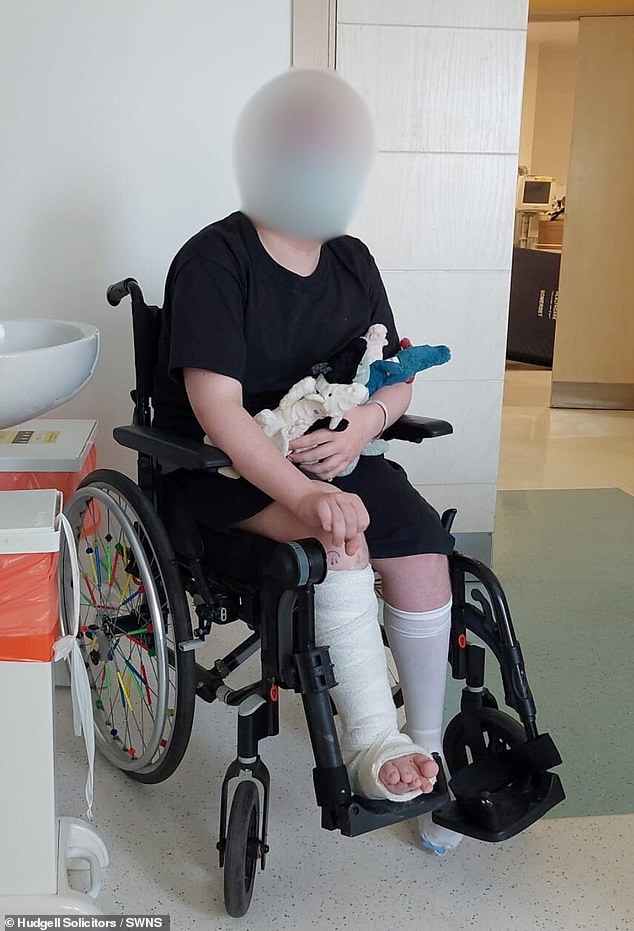Failed operations put even more pressure on the NHS: dirty tools, cutting off the wrong body part and leaving equipment with the patient are the main reasons why further treatment is needed
The number of patients requiring further treatment due to failed NHS operations has risen by more than 70 per cent in five years.
Blunders include using dirty tools, cutting off the wrong body part, and leaving equipment in patients’ bodies at the end of a procedure.
Patients required extra care as a result of 23,997 such incidents last year, an increase of 72.6 per cent from 13,903 in 2018/19, according to NHS England.
The trauma can hurt people, delay recovery, and pose additional risk if the procedures need to be repeated under general anesthesia.
Repeated operations also consume valuable staff and operating room time, which could be used to eliminate waiting lists, which currently stand at 7.6 million.
Patients needed further care after surgeons accidentally cut the wrong part of their body 19,174 times last year, making it the most common type of accident.
While ‘under the knife’, these patients suffered what the NHS describes as an ‘accidental cut, puncture, perforation or bleeding’.
The number of times doctors have treated a patient suffering from these errors has almost doubled in the past five years and increased by 13 percent in the past year alone.
Blunders include using dirty tools, cutting off the wrong body part and leaving equipment in victims’ bodies at the end of a procedure (file image)

Patients required extra care as a result of 23,997 such incidents last year, an increase of 72.6 per cent from 13,903 in 2018/19, according to NHS England (file image)
Figures show that the majority of these complications occur during surgery, but some also occur while patients are being assessed with a flexible camera, known as an endoscopic examination.
NHS statistics show that patients are increasingly recovering from anesthesia to find that equipment has been accidentally left inside them or that they have been operated on with equipment that was not properly sterilized.
Others were not given the right medication and developed complications as a result.
The NHS says much of this increase is due to surgeons trying to perform increasingly complex operations, vastly increasing the chance of something going wrong.
However, health bosses admit there is no excuse for accidentally leaving equipment with a patient and this is formally known as a ‘never happen’ as it should never happen.
Despite this, there were a record 335 cases last year where people had to be seen again by doctors because an object such as a cotton swab or needle had not been removed from their body at the end of their operation.
There were 47 incidents where patients were at risk of infection because the equipment used on them was not properly sterilized.
And there were 132 cases of patients being cared for in hospital after a complication occurred because they were not given the correct dose of medication.

Mr Winchester (centre back) pictured with his daughter and two sons

Jeremy Parker (pictured) was suspended by the General Medical Council in February 2023
Guy Forster, joint vice-president of the Association of Personal Injury Lawyers (APIL), said: ‘If patients place their health in the hands of the NHS, they should be able to expect not to be let down by fundamental avoidable failures such as non-sterile equipment or ‘never events’ such as wrong-site surgery.
‘These incidents often have very serious, long-lasting consequences for the victims.
“Despite identifying these events, lessons are not learned and the same failures are repeated over and over again.
‘The approach to patient safety within the NHS is disjointed, with a patchwork of reporting schemes, frameworks and recommendations.
‘There is an urgent need for a co-ordinated, overarching strategy to tackle the problems that are repeatedly causing unnecessary injuries and deaths within the NHS.’
An NHS England spokesperson said: ‘NHS staff work very hard every day to care for patients and while these types of patient safety incidents are thankfully rare, it is vital that NHS organizations take effective steps to learn from and adapt improve.’
Earlier this year, a contractor lost his business, his wife and his home after a botched operation left him disabled and unable to work.
Rodney Winchester, from Thetford, racked up £40,000 in debt and was plunged into poverty after disgraced NHS surgeon Jeremy Parker had his entire knee joint removed during an operation.

Pictured: The Royal Sussex County Hospital in Brighton, where deaths between 2015 and 2020 are being investigated by Sussex Police
The father-of-three had a problem with loose cartilage in his knee and was told he needed surgery to remove the broken fragments, only to later discover that the operation was not necessary and that steroid injections would have been sufficient .
In Brighton, a surgeon from an under-fire NHS trust used a Swiss Army pocket knife from his lunch to cut open a patient after being unable to find a sterile scalpel.
The unnamed surgeon was operating on a patient at the Royal Sussex Hospital in September when he reportedly could not find a clean instrument.
So he decided instead to grab his pocket knife, which he normally used to cut up his fruit.
University Hospitals Sussex said the operation took place outside the theater in an emergency situation, but his actions were ‘outside normal procedures and should not have been necessary’.
Fortunately, the patient survived, but people at the hospital found his behavior “questionable” and were “very surprised” that he could not find a clean scalpel.
MailOnline also revealed in September that a ‘rogue’ pediatrician who treated 721 children at Great Ormond Street Hospital, leaving some with serious injuries, different leg lengths and even needing amputations, continues to operate on unsuspecting patients in Dubai.

Dr. Yaser Jabbar is a former NHS orthopedic surgeon who is said to have left dozens of children with life-changing injuries as a result of his operations

One of his alleged victims (pictured), who had misalignment of his legs, had his leg amputated after Dr Jabbar allegedly botched his operation
Former NHS surgeon Yaser Jabbar, 43, stopped treating patients at the hospital in 2022 after concerns were raised about his work, before moving to the Middle East and claiming to be one of the most sought-after doctors in his field are.
He now lives in Dubai where he speaks at conferences about his “expertise” and continues to operate on children at the Clemenceau Medical Center and in hospitals for orthopedic specialists Orthocure, according to their websites.
Great Ormond Street launched an urgent review of all young people treated by Jabbar in the orthopedic department after colleagues and the families of his patients complained about his behaviour.
Of just 37 children Jabbar has treated at the hospital and who have already been assessed, 22 of them have suffered some degree of damage, with 13 classified as serious injuries.
One child had to have a leg amputated after an operation performed by Jabbar, and another child is at risk of amputation.
Some have legs of varying lengths, as long as 8 inches in some cases, while other injuries include muscle damage and nerve damage.
